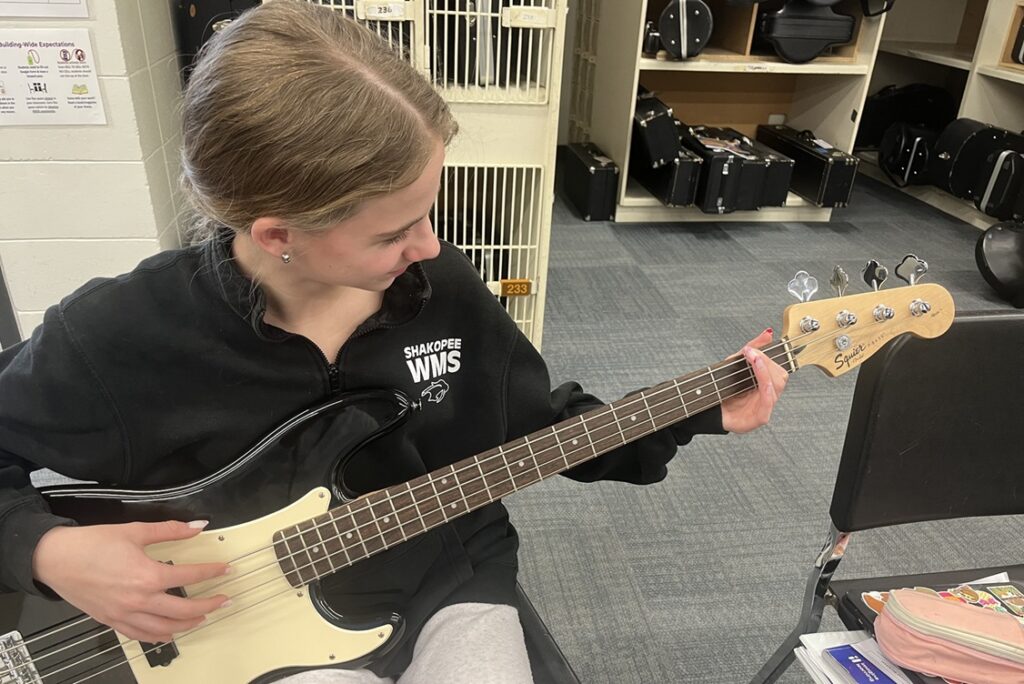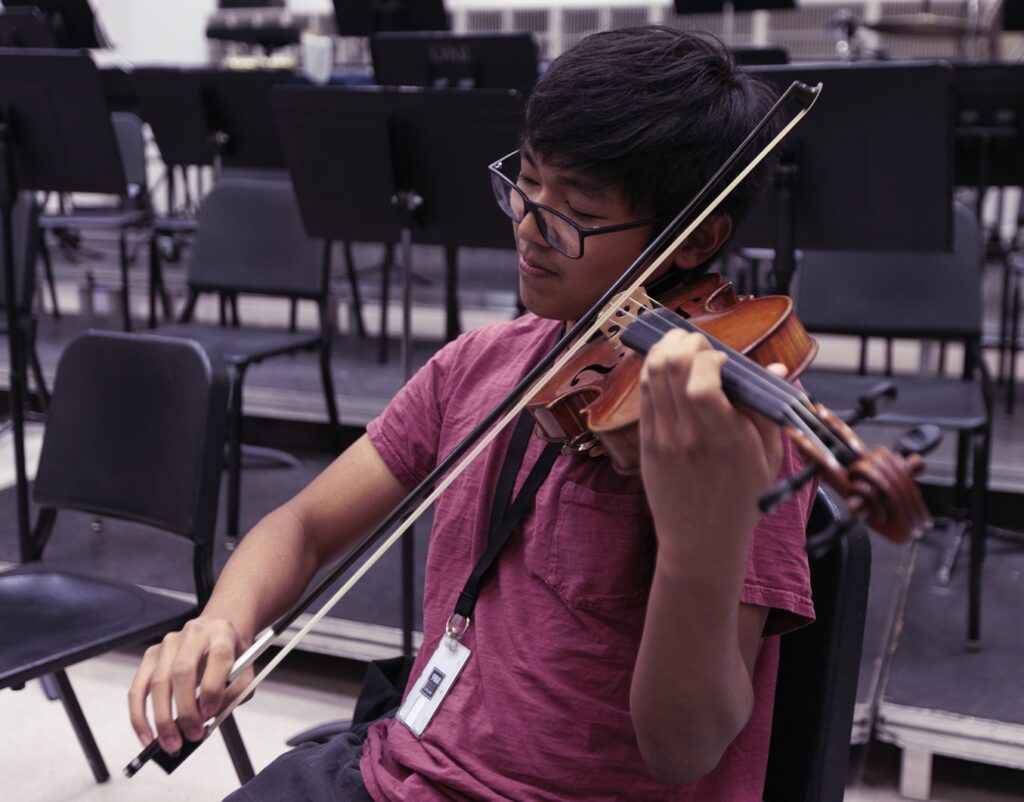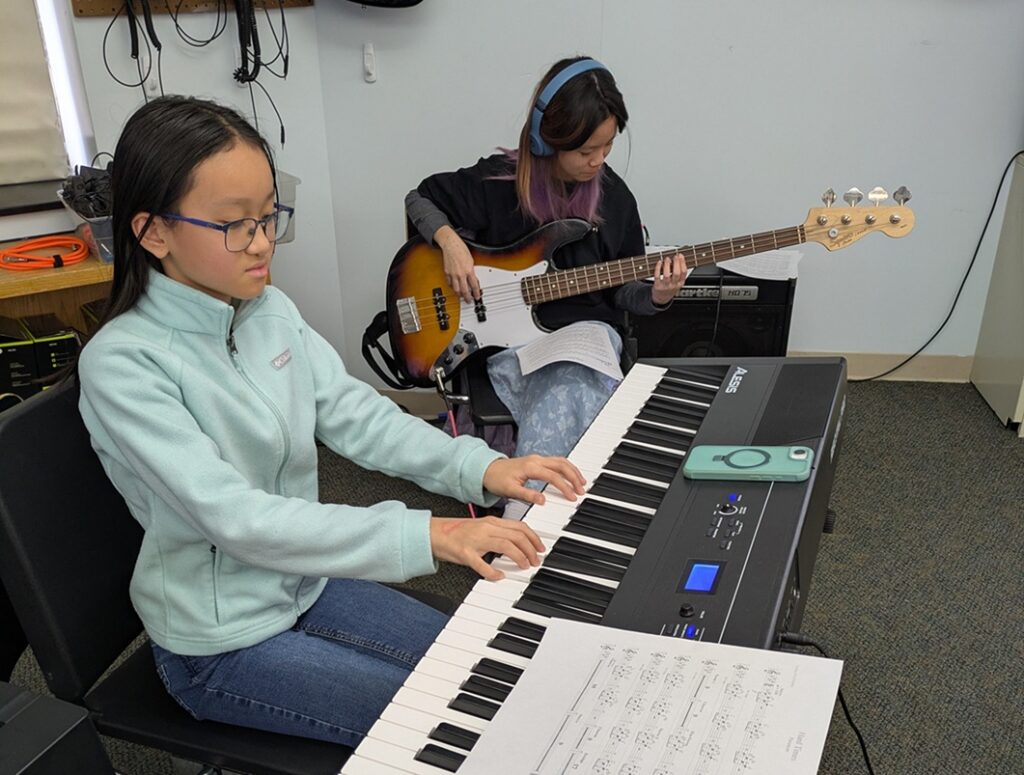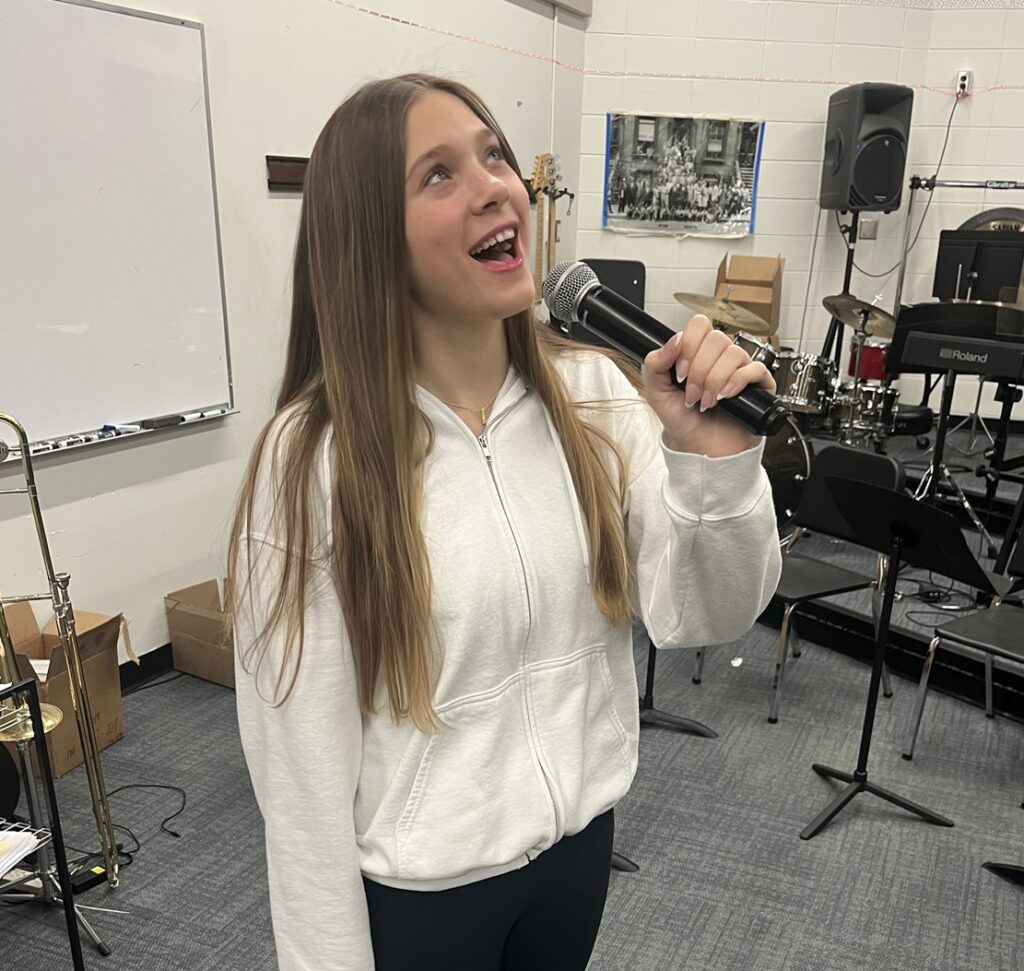Mentoring in Action — From the Mentor’s Perspective
Veteran music educators can — and must — help guide and mentor new music teachers.
I was scheduled to write an article toward the end of the year about the importance of being a mentor, but I received an email in midsummer from my editor at Yamaha, asking if I would be interested in a real-world mentoring opportunity that I could then write about.
A recent music education graduate, Dan Schmitt, had attended the Music for All Summer Symposium and talked to some Yamaha staff members about starting a new job in the Chicagoland area. He admitted that he was a little nervous but very excited about the position.
Why not have Dan reach out to me — I am also based near Chicago — with some “burning” questions before stepping into the classroom? I immediately said, “Yes!”
Our Meet Up
We agreed to meet at a coffee shop and prior to our meeting, Dan emailed me several questions. I reviewed them but chose not to dig into them too much because I wanted Dan to have some authentic, filter-free responses.
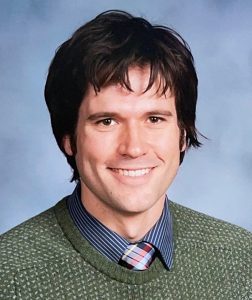
We hit it off immediately. I could tell Dan was worried. He first asked, “A common consensus I hear is that your first year of teaching is always going to be rough and you shouldn’t expect much. Is this actually the case? Does it have to be? How can we best ‘brace for impact’?”
I was disheartened to hear that this was what he was hearing from multiple angles. Someone might as well have said, “Welcome, Dan. This year will be terrible, and you won’t get it back.” Yet, here was someone in front of me who clearly wanted to resist this way of thinking, and I’m grateful for that.
I could go into a lot of detail about Dan’s questions and our conversation, and I’m sure Dan covers some of that in his side of the story. The short version is that I thought back to when I was a young teacher. What I wanted to hear didn’t matter. What was more important was to find out what I needed to hear. Most of these must-know items fell in the categories of confidence, vulnerability and balance.
Confidence and Vulnerability
In terms of confidence, I reminded Dan that he was hired for this job and that a school board signed off on him. The people who sign his paychecks have confidence that he can do the job, and therefore, there is no reason for him to have any doubt that he is the person for this position. Confidence doesn’t mean that you have the answers to everything; rather, it’s about someone being able to trust and rely on you. Reliable and trustworthy people make mistakes and continue learning. Perfection is not the goal.
- It’s important that new educators understand the realities of teaching. There’s an unwritten expectation of music teachers.
- You must always say yes.
- You must get to school early and leave late.
- You must check the boxes of bringing your kids to certain festivals and contests.
The list goes on and on. By all means, if you’d like to follow this path, go for it. I did and learned a lot about myself and what was best for my kids along the way.
Balance
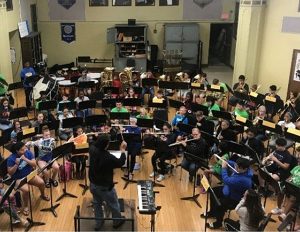 However, new educators should understand that they can and should have the option of enjoying a life outside of their career. I shared my ups and downs with Dan. Small things, like missing out on some after-school social events. Other small things, such as not being at some of my own children’s events because of work-related items or eating poorly during busy seasons. But these small things add up to larger issues and can sneak up on you. No one plans on their health taking a negative turn, or their friend circle shrinking, or a divorce. They just “seem to happen” and can often be a result of us putting our careers ahead of our own health and wellness.
However, new educators should understand that they can and should have the option of enjoying a life outside of their career. I shared my ups and downs with Dan. Small things, like missing out on some after-school social events. Other small things, such as not being at some of my own children’s events because of work-related items or eating poorly during busy seasons. But these small things add up to larger issues and can sneak up on you. No one plans on their health taking a negative turn, or their friend circle shrinking, or a divorce. They just “seem to happen” and can often be a result of us putting our careers ahead of our own health and wellness.
Here are some suggestions I shared with Dan on how to balance a career and a personal life.
Not-To-Do List: I spoke to Dan about the concept of a “not-to-do” list. Try new things as much as you can, but as you progress in your career, write down the things that you really don’t like that you can actually opt out of. Those items go on a “not-to-do” list, which is basically a reminder that you have some choice in how you spend your and your program’s time.
Schedule “Me” Time: Make sure to schedule what you want to do for fun for the year (hiking, seeing a movie, time with friends) and put these dates in your calendar. These events become non-negotiable, regardless of what pops up or how tired you are!
Age Differences: Dan told me that some of his music parents might be old enough to be his parents. How can you talk to someone like a professional if they have 20 years on you? I went back to being vulnerable and open and suggested approaching parents by saying something like: “I know I have a lot to learn and manage in this program, and I’m confident that I can give your child a positive musical experience. Yet, I’m not too proud to ask for help. Can you help me with some of the management and planning part of this program?”
Own Your Mistakes
Don’t fake it until you make it — just be honest. I told Dan that he’ll undoubtedly make mistakes — we all do — and to simply own them. I shared a couple of examples of early errors I made.
- “You didn’t turn your bus request in on time!”
Internal monologue: Lots of excuses about being busy, systems being cumbersome, having no help, etc.
External (honest) response: “You’re right. I didn’t manage this procedure well. I’ll write this down and make sure to turn all of my future bus requests in on time.” - Me: “OK, class — this rhythm is counted as ‘one-e-and-a.’”
Student: “Actually, Mr. Stinson, that’s counted as ‘one-and-a.’”
Me: “Whoops — I made a mistake. You’re correct. Thank you for correcting me and thank you for supporting me on my rhythmic journey.”
Lasting Lessons
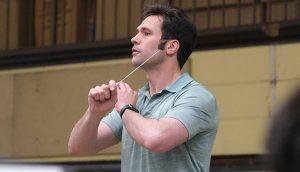 This meeting was exciting for me. Selfishly, I got a lot out of meeting with Dan. Sometimes as a teacher in the mid-stage of your career, you reflect on the things that you do, but also on the things that you used to do. As I shared my thoughts and tips with Dan — such as being vulnerable with students to encourage musical expression, writing encouraging handwritten notes on every student’s program before a concert, and creating a not-to-do list — I started to realize that I had strayed away from some of these items in my own teaching.
This meeting was exciting for me. Selfishly, I got a lot out of meeting with Dan. Sometimes as a teacher in the mid-stage of your career, you reflect on the things that you do, but also on the things that you used to do. As I shared my thoughts and tips with Dan — such as being vulnerable with students to encourage musical expression, writing encouraging handwritten notes on every student’s program before a concert, and creating a not-to-do list — I started to realize that I had strayed away from some of these items in my own teaching.
A lot of teaching is coming to the realization that relationship building is key to helping today’s students and effective teaching in today’s group education settings. In the past, I had used some of those items that I suggested to Dan to get to the “next level,” while enjoying what I thought was a side-effect of relationship building. But early on, I inadvertently switched my priorities. I started thinking that I had to prove myself to others to get to that next level. In hindsight, maybe that next level wasn’t important (or maybe, there wasn’t even a next level…).
I enjoy my time teaching, but I’ll admit, I get a little nostalgic for those early years of curiosity, trial and error, and new experiences. So, I took my own advice, and walked into the first day of school as fresh as I could be, with an open mind to deliver what I can this year. It was one of the best opening days with students that I’ve ever had. We focused on ourselves and our little corner of the world in our band room.
To the mid-stage and veteran teachers, I ask: Are we welcoming our new colleagues, or are we serving as gatekeepers to the profession we love and live? Yes, they’re new, but do our new colleagues really have to feel like they are going through yet another audition/job interview until they prove themselves? I’ve witnessed some mid-stage to veteran teachers wanting to make new teachers “pay their dues” or even suffer to make sure that they are truly in it. Yet, I’ve also witnessed experienced teachers provide guidance, support and encouragement.
We can — and must — help guide and mentor our own. There will always be kids to teach, and we have to help in any way we can to ensure that there are teachers for our kids. I’m glad to have people like Dan as a new colleague in the music education world. A new teacher who is going into teaching knowing that he won’t be perfect, but that he has the skills to do the job; a teacher who is able to check his ego at the door and ask for help when needed, and a teacher, like many of us, who just simply want the best for our world.
I followed up with Dan after this meeting over text. I was happy to hear that his first rehearsal went better than expected. I’m looking forward to meeting with him again soon. I have a recurring task in my to-do list to check in with some student teachers or teachers who I have mentored in the past. Time always seems to get away from us but it’s important to make the time and prioritize connecting with those who are working to find their way.
To all teachers out there — good luck this year, and take it all in. This year shouldn’t just exist to pass and make you “check off” a year of experience.
Read this article’s companion piece, Mentoring in Action — From the Mentee’s Perspective, by Dan Schmitt.











